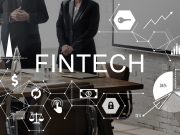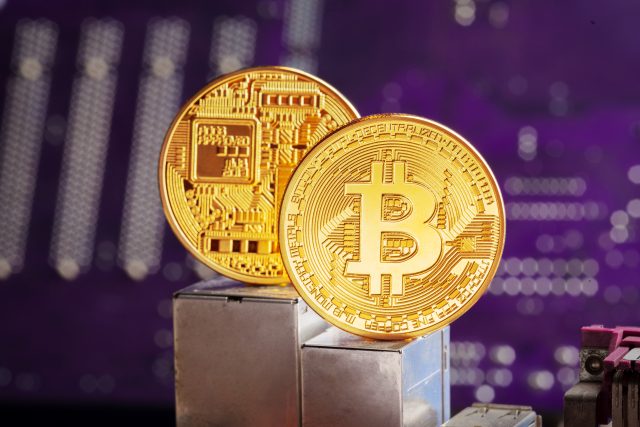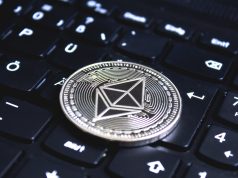Cryptocurrency has come a long way since Bitcoin’s inception in 2009. What started as a mysterious, tech-driven currency has evolved into a global financial revolution, giving rise to thousands of different cryptocurrencies—also known as altcoins.
Whether you’ve just dipped your toes into the world of crypto or are already a seasoned investor, understanding the full spectrum—from Bitcoin to the vast world of altcoins—is crucial for navigating the modern digital economy. Let’s break it down.
1. Bitcoin: The Pioneer and Digital Gold
Bitcoin, often referred to as digital gold, is the original cryptocurrency and the one that started it all. Created by the pseudonymous Satoshi Nakamoto, Bitcoin was designed as a decentralized form of money, meant to bypass traditional financial systems.
Why Bitcoin Matters:
- Scarcity: There will only ever be 21 million Bitcoin, making it a scarce asset (a major appeal for investors).
- Security: Bitcoin is the most secure blockchain network, with the highest mining difficulty and network hash rate.
- Store of Value: Many investors view Bitcoin as a hedge against inflation or economic uncertainty, much like how gold is used in traditional finance.
🚀 Pro Tip: Bitcoin remains the safest crypto investment for beginners, but keep in mind, its price can still be volatile in the short term.
2. Altcoins: The Growing Family of Cryptocurrencies
Altcoins refer to any cryptocurrency that isn’t Bitcoin. These include a broad variety of digital assets, each with unique features, use cases, and technologies.
Some altcoins are designed to improve on Bitcoin’s limitations, while others serve entirely different purposes, such as powering decentralized applications (dApps), enabling smart contracts, or even providing privacy-focused transactions.
Popular Types of Altcoins:
- Ethereum (ETH): Ethereum is the second-largest cryptocurrency by market cap and introduced the world to smart contracts—self-executing contracts where the terms of the agreement are directly written into code. It’s the foundation for decentralized finance (DeFi) and NFTs (Non-Fungible Tokens).
- Binance Coin (BNB): Originally used to pay for transaction fees on Binance, one of the world’s largest exchanges, BNB has evolved into a utility token for a range of services on Binance’s ecosystem.
- Solana (SOL): Known for its high-speed transactions and low fees, Solana has become a popular platform for DeFi and NFTs, often competing with Ethereum.
- Ripple (XRP): XRP is designed for fast, low-cost cross-border payments, aiming to revolutionize the global remittance industry.
- Cardano (ADA): Created by one of Ethereum’s co-founders, Cardano focuses on sustainability and scalability, with a proof-of-stake consensus mechanism that’s more energy-efficient than Bitcoin’s proof-of-work.
💡 Fun Fact: There are now over 10,000 altcoins in existence, and while many may not survive, some will become vital players in the blockchain ecosystem.
3. What Sets Bitcoin and Altcoins Apart?
While Bitcoin and altcoins both run on blockchain technology, their purposes, consensus mechanisms, and design features differ. Let’s compare:
| Feature | Bitcoin (BTC) | Altcoins (e.g., ETH, BNB, SOL) |
|---|---|---|
| Purpose | Digital currency, store of value | Varies—smart contracts, decentralized apps, etc. |
| Blockchain | Bitcoin blockchain (most secure) | Multiple—Ethereum, Solana, Binance Smart Chain, etc. |
| Transaction Speed | Slow (10 mins for confirmation) | Fast (seconds to minutes, depending on the blockchain) |
| Consensus Mechanism | Proof-of-Work (PoW) | Proof-of-Stake (PoS), Proof-of-Work (PoW), others |
| Scalability | Limited scalability due to network congestion | Designed for scalability with faster transaction processing |
⚖️ Pro Tip: Bitcoin is a safe bet for long-term storage of value, while altcoins present more growth potential but come with higher risk.
4. How to Start Investing in Bitcoin and Altcoins
Investing in crypto can be overwhelming, but it doesn’t have to be. Here’s a simple guide to get started:
Step 1: Choose a Trusted Exchange
Start by picking a reputable exchange to buy, sell, and store your cryptocurrency. Some of the most popular ones include:
- Coinbase (easy for beginners)
- Binance (low fees, lots of altcoins)
- Kraken (secure, good for both beginners and advanced traders)
Step 2: Buy Bitcoin or Altcoins
After you’ve set up your exchange account, you can start purchasing Bitcoin or any of the altcoins you’re interested in. Most platforms accept payment via bank transfer, credit card, or even PayPal.
Step 3: Store Your Crypto Securely
It’s best practice not to keep all your crypto on exchanges, as they’re vulnerable to hacks. Use a hardware wallet (like a Ledger or Trezor) or a software wallet (like MetaMask or Trust Wallet) for added security.
🔐 Pro Tip: Always enable two-factor authentication (2FA) to protect your accounts.
Step 4: Stay Informed and Diversify
While Bitcoin is the flagship, diversifying your portfolio with a mix of altcoins could lead to higher returns. But, always do your research before diving into any altcoin, as many projects are still in their early stages or lack long-term viability.
While altcoins can offer higher growth potential, they come with a few additional risks:
- Market Volatility: Altcoins tend to be much more volatile than Bitcoin, meaning bigger price swings.
- Project Viability: Many altcoins are based on new or untested projects. If the project fails, you could lose your investment.
- Regulatory Risks: As crypto markets mature, there’s still a lot of regulatory uncertainty. Some altcoins could face scrutiny or restrictions depending on where you live.
⚠️ Tip: Stick to well-known, reputable altcoins and never invest more than you’re willing to lose.
The crypto market is growing at lightning speed. Bitcoin will likely continue to lead the pack as a store of value and digital gold, but altcoins are pushing the boundaries of what blockchain can do—from smart contracts to decentralized apps, gaming, and beyond.
As we look ahead to 2025, crypto is shaping up to be an essential part of the global financial landscape. By understanding both Bitcoin and the world of altcoins, you’re better equipped to make informed, strategic decisions in this rapidly evolving market.














